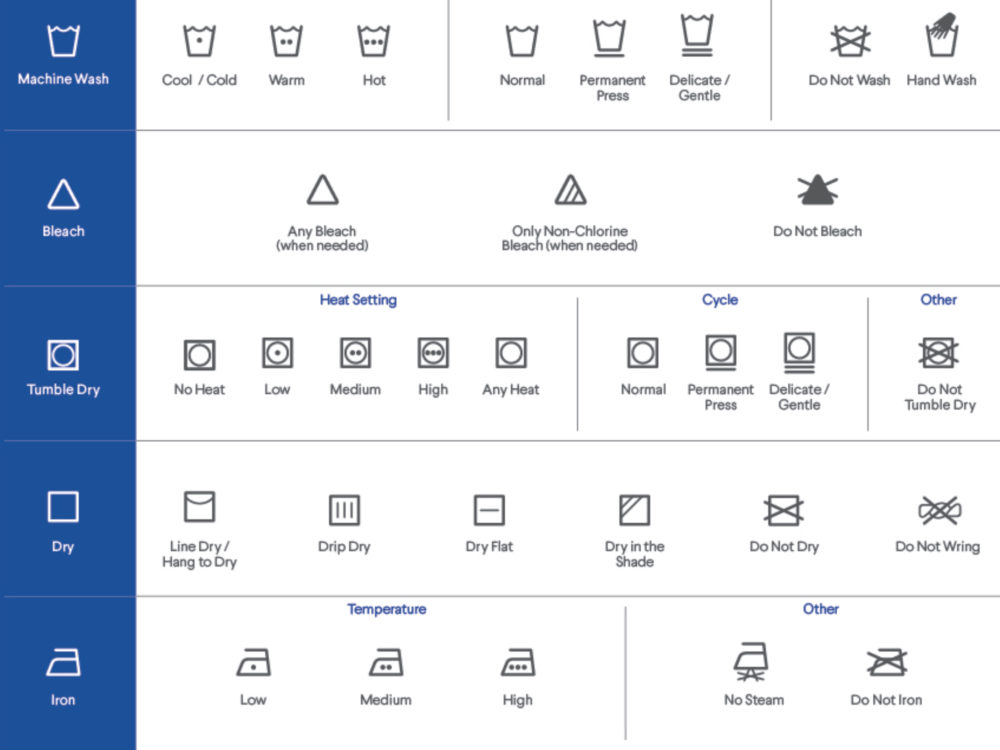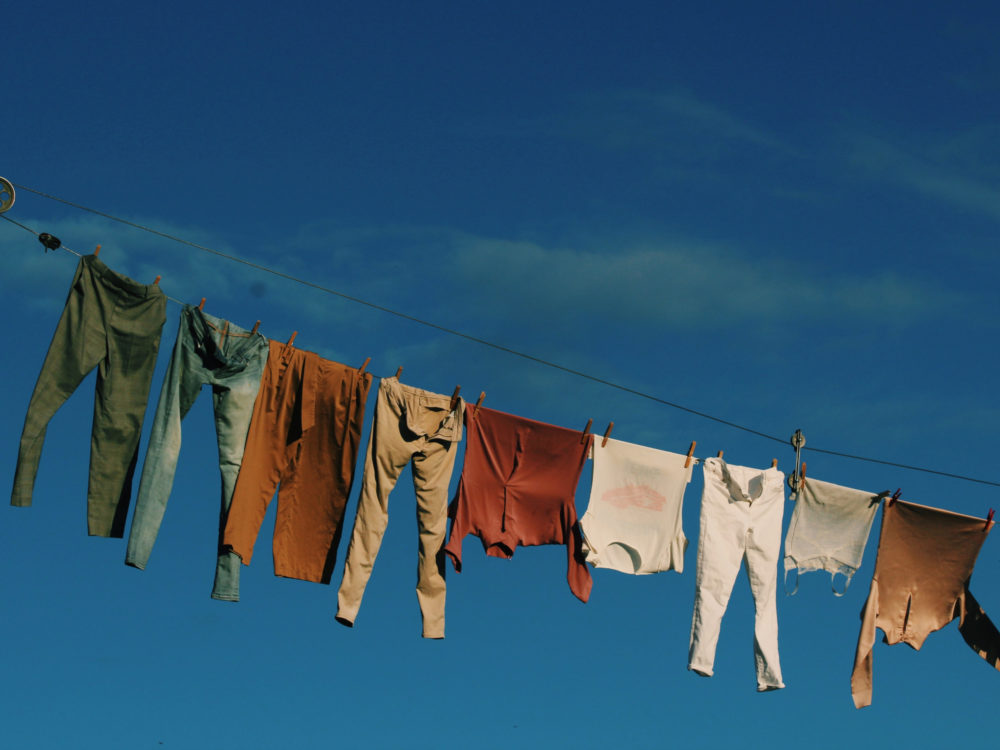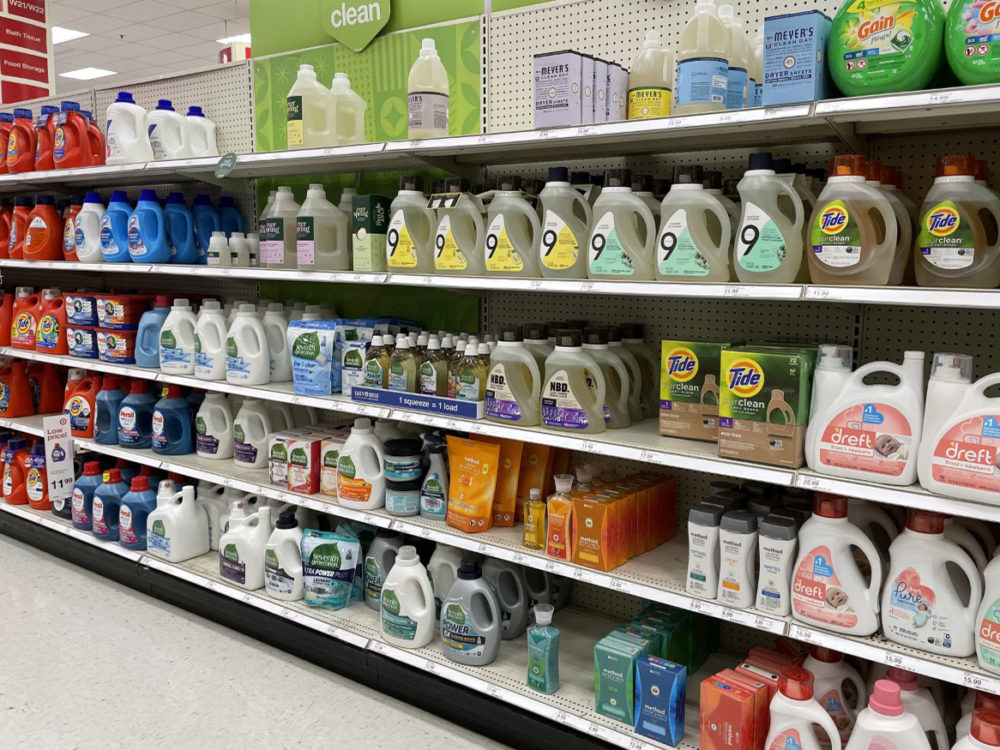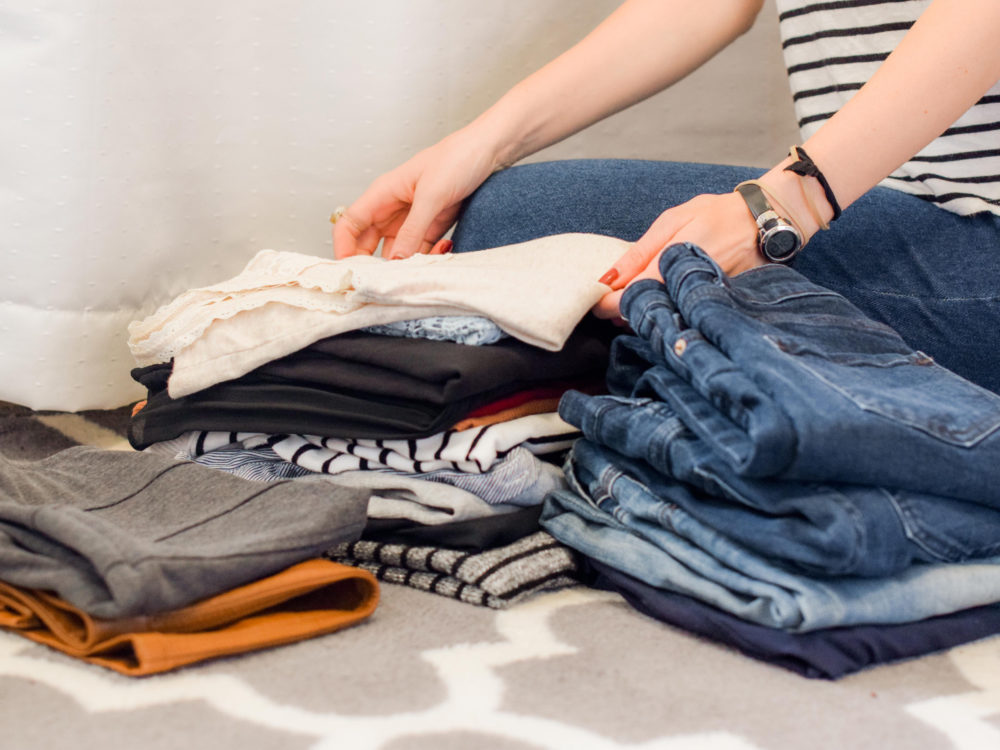Green your Laundry - Why and How
- Washing in cold water reduces your personal carbon footprint by 10% and is just as effective —most detergents today are formulated for cold washing.
- Air-drying your clothes helps reduce climate impact by 67%.
- Machine drying clothes accounts for 75% of laundry’s total carbon footprint.
- Look for care labels and know what the symbols mean.
- Wash only full loads to reduce the number of wash cycles.
- Turn your clothes inside out before washing, so the colors of garments can be protected and snags between garments can be avoided.
- Wash your clothes less often. Instead, air out your clothes to refresh and spot treat stains when they happen.

Take Care of Your Clothes and The Environment
Sustainable laundry practices help:
- Keep your clothes longer because frequent washing and tumble drying, especially at high temperatures, degrades fabric quality and reduces fiber strength leading to tears and holes.
- Protect the planet by reducing energy use, water consumption, and other climate change impacts by washing clothes less often.
- Save time because washing your clothes less often means less time spent doing laundry.

-
6% of a home’s energy consumption comes from the electric dryer
-
Avoid Fragrances They accumulate on the body and can cause allergies, skin irritation, difficulty breathing or reproductive harm
-
Reduce climate change impacts by up to 80% by washing jeans after 10 wears instead of two
Problems with Fabric Softeners
Harmful chemicals can be found in both laundry detergents and fabric softeners.
- Phosphates are harmful to local water systems, stimulating algae growth that can become toxic and reducing oxygen levels.
- Fragrances accumulate on the body and can cause allergies, skin irritations, breathing difficulties, or potential reproductive harm.
- Dyes, “preservatives,” “colors,” and “colorants” can trigger asthma or skin allergies, and some have been linked to cancer.
- “Quats” (quaternary ammonium compounds) are known to trigger asthma and may be toxic to reproductive systems.

Shopping Cleaner and Smarter
- When shopping for detergents, look for products that are labeled as SLS/SLES free neutral pH, made without animal ingredients, or plant-based.
- Skip buying fabric softeners and make your own eco- and skin-friendly version by using 1-2 tbsp. of white vinegar with a couple of drops of your favorite essential oil for a more refreshing smell.
- For more information, search for the U.S. Environmental Protection Agency’s (EPA) “Safer Choice” Products and Environmental Working Group’s (EWG) “Guide to Healthy Cleaning.”

Laundry Myths and Facts
MYTH: Clothes washed in full loads are not as clean.
FACT: Modern washing machines (especially front loaders and high-efficiency) are made to be more effective with full loads.
MYTH: Clothes washed at lower temperatures are not as clean.
FACT: Modern washing machines are designed to clean well even with water at lower temperatures.
MYTH: Eco-friendly detergents are more expensive.
FACT: Most environmentally safe laundry detergents are of similar or same price points to conventional laundry detergent brands.



